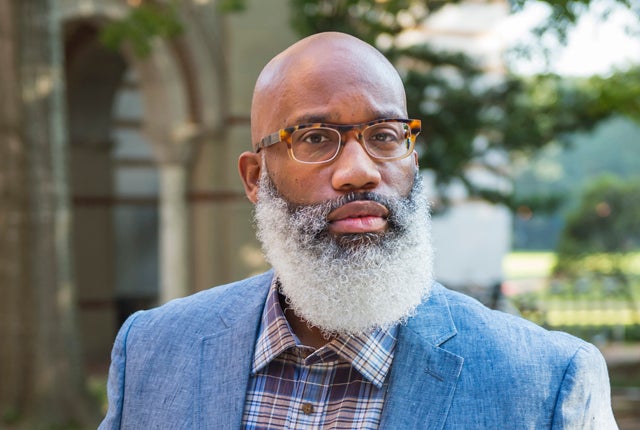I thought Derek Chauvin would be acquitted. I’ve never been happier to be wrong, but like the racial tapestry called the United States, I am torn.
His conviction depended upon: multiple recordings from mobile phones; working body cameras; testimony from traumatized eyewitnesses and emergency medical technicians; widespread political unrest and mobilization; too many hashtags; an energetic rainbow coalition assemblies of citizens ready to burn the house that genocide and slavery built to the ground; prayers of the faithful; and maybe most important, police officers under oath speaking the truth about flagrant Black death.
Everything but the kitchen sink. Actually, the kitchen sink was exhibit No. 37.
It begs several questions. What about the countless times there were no recordings? What about the families of Sandra Bland, Amadou Diallo, Tamir Rice, Rodney King, Kalief Browder, Michelle Cusseaux, Emmet Till, Breonna Taylor, Alton Sterling, Trayvon Martin, Philando Castile, India Kager, Elijah McCain and others failed by the criminal (in)justice system? Those with the wrong complexion for legal protection, do they feel vindicated? Is this a victory for them?
One callous white police officer convicted does not signal the demise of anti-Blackness. Her talons are embedded deeply in this nation’s flesh. It is like putting a $100 down payment on a $100 million house. It is progress, but you might want to hold off on scheduling the housewarming party.
Like I said, I expected acquittal. Is something wrong with me? Nah. Racism causes Black people to doubt themselves; to be hesitant when a racially just outcome depends upon white people; to be cynical when white liberals assert they will do everything in their power to redress inequality; and to be suspicious when Black people chant Black Lives Matter, knowing not all agree. What alternate explanation exists for nightly news stories describing Black people gunning down other Black people in Houston?
When your community is this deep in a hole, when stars must align perfectly for the scales of justice to balance, then nihilism is normal. It is expected. It is rational. Living in a society where you must, generation over generation, convince whites you are human and equally valuable, daily, numbs you. Such numbness, ironically, produces dislocations callous whites argue are proof of Black people’s inhumanity.
Racism deniers fail to appreciate delayed gratification, respectability politics, a bootstrap mentality and optimism are privileges reserved usually for those whose worth was never in question; whose families have always been intact; whose children have always felt safe; and whose pain is recognized. If life offers little promise of dignity, fairness and safety, then live for now because tomorrow is not a new day. Nihilism is like comfort food. It feels good to consume, but will kill you and your community in the long run.
I no longer rely on hope. Sorry, Barack Obama, you hope dealer. The dual pandemics of COVID-19 and anti-Blackness convinced me truth is a more powerful weapon. Truth offers freedom. Festering sores that racism causes can only be healed by the truth. I know now Black people must stop asking whites to value us. That ship has sailed (we were tight packed in its bowels). I know now Black people must look inward and find reasons to resist nihilism, reasons to believe Black lives matter. I know now Black people cannot sit silently when anyone, of any race, discounts our value. Despite what some athletes, rappers and reformed drug dealers turned businessmen profess, material possessions do not indicate value. There is more to life than more. But that truth eludes some Black people because we hope white people will value us if our bank accounts swell up, and we dress and talk the right way. Honestly, that’s what I believed for most of my life. It was an incredibly heavy burden to bear.
My hero, Colin Kaepernick, was right. He kneeled because he understood Black people were undervalued by white people and themselves. He aimed to increase our value at his own personal expense. He was vilified for giving a damn. Chauvin kneeled because he believed he could get away with it, because people are not united in their efforts to increase the value of Blackness, not even enough to quit watching NFL games. The common refrain from whites who cannot see racism is that Black people kill more Black people than the police. That truth hurts me and empowers those who fail to acknowledge how white supremacy is the root cause.
This may be the moment the Black community has been waiting for. The moment to turn inward and assess whether and how much we value ourselves. If we do not take advantage of this moment, then Chauvin might as well have been acquitted.
Brown is director of the Racism and Racial Experiences (RARE) work group and a professor of sociology at Rice University. This piece was originally published in the Houston Chronicle and is available online at https://www.houstonchronicle.com/opinion/outlook/article/Opinion-Black-community-the-moment-to-value-16124769.php

